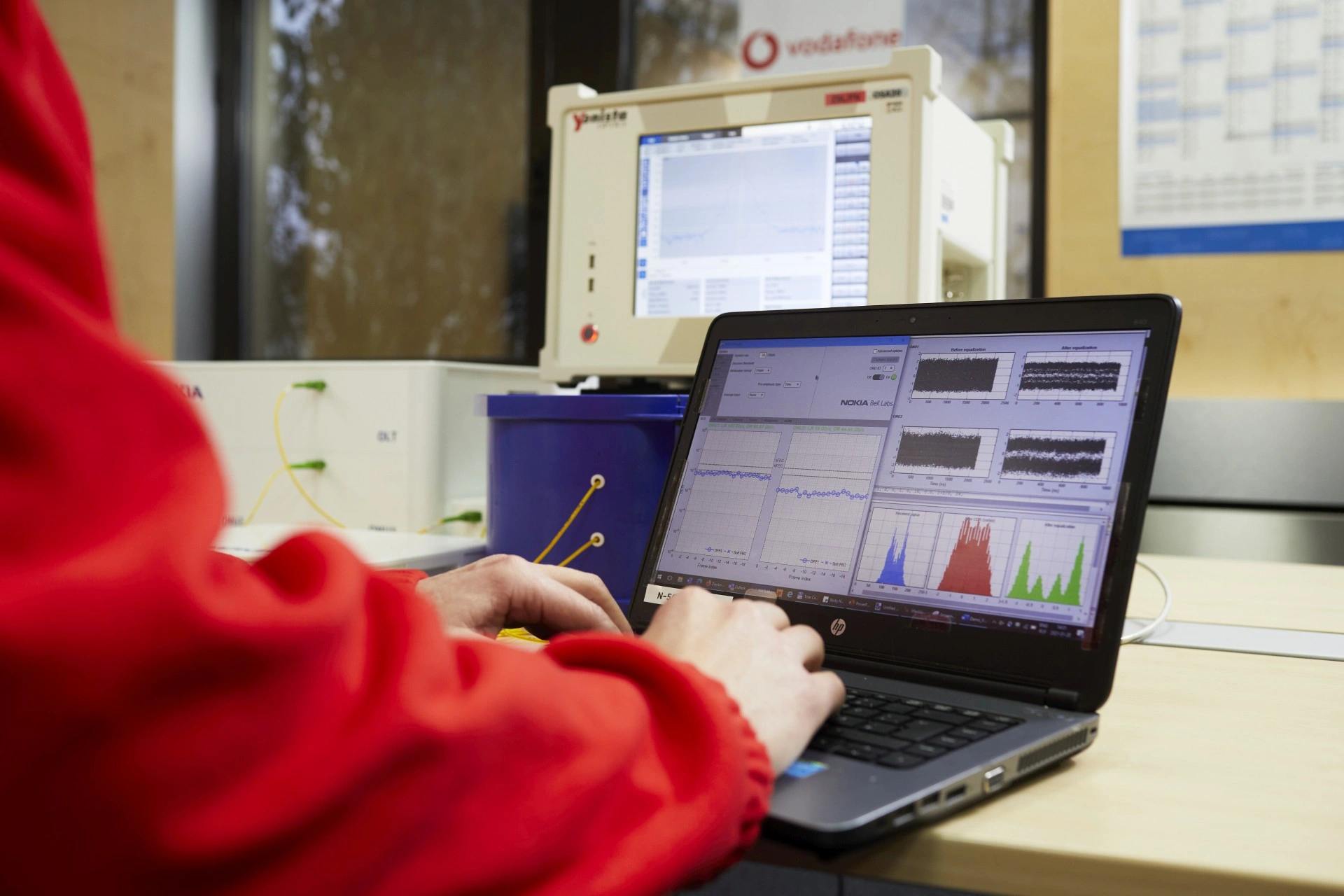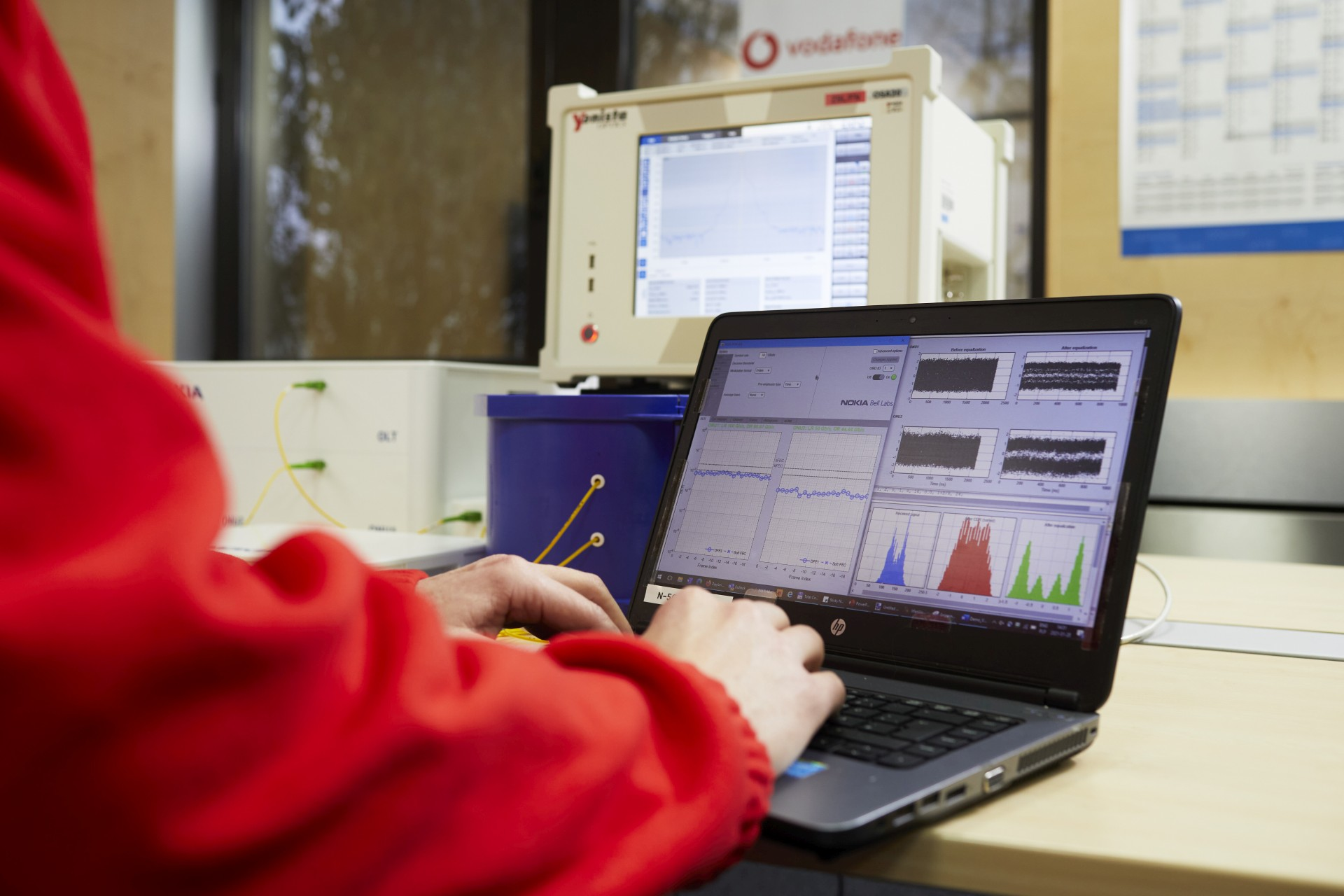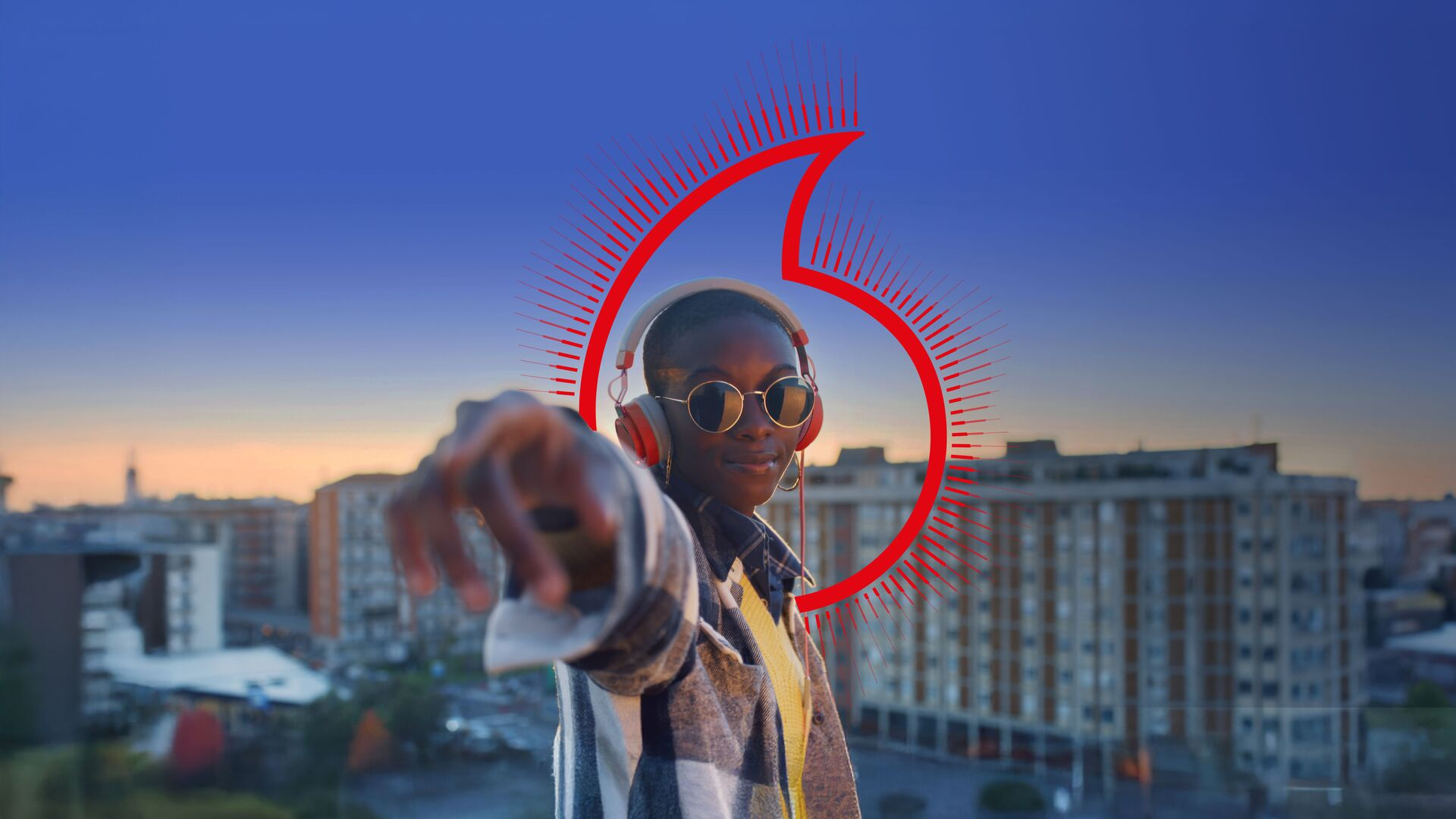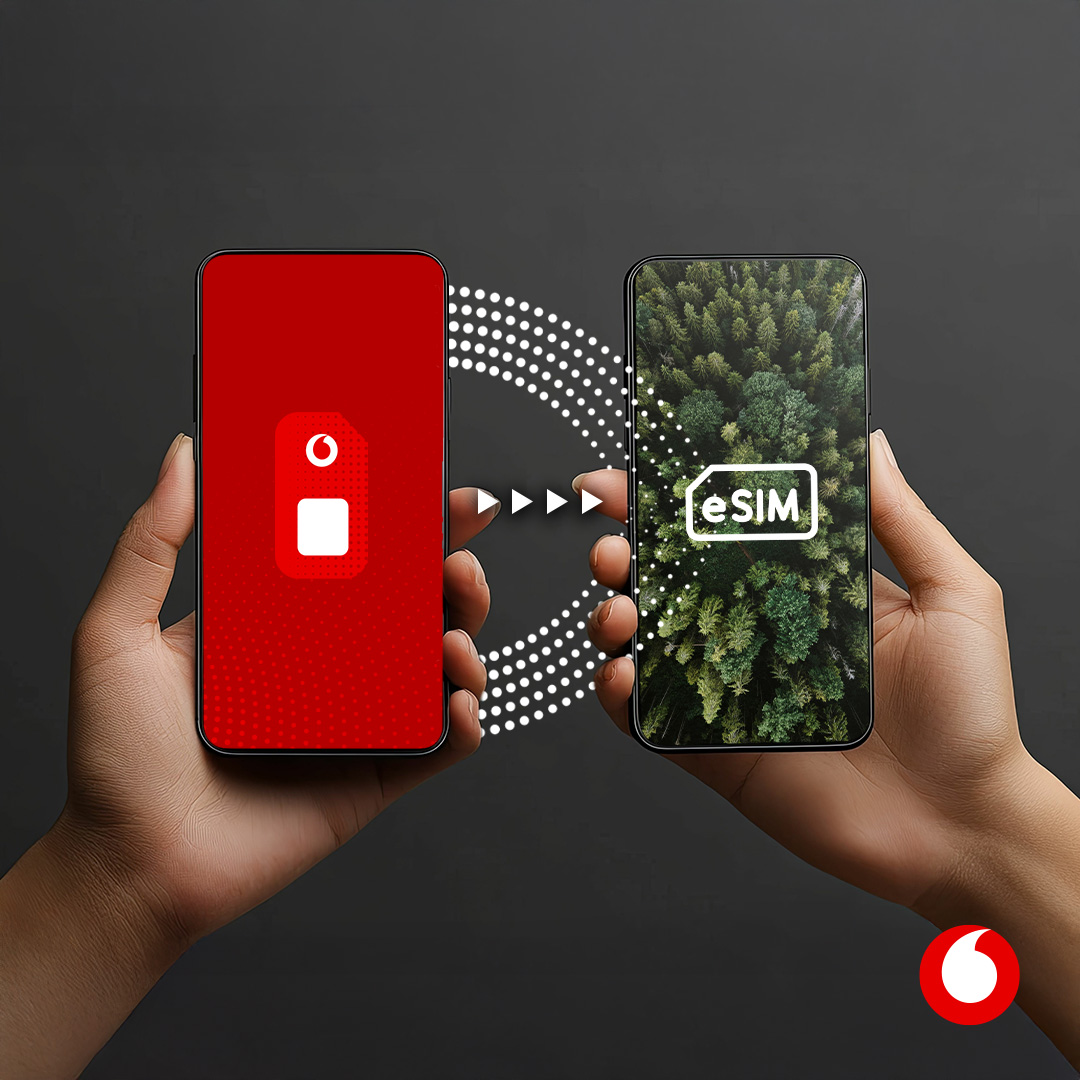Vodafone and Nokia record speeds of 100 gigabits-per-second in test of a new broadband network technology.
100 Gbps Passive Optical Network (PON) will power next generation cable and fibre broadband connections from 2030.
10 times faster than today’s multi-gigabit networks, supporting new immersive services and making sure customers never run out of broadband bandwidth.
Imagine as a Vodafone customer being able to touch an object over the internet, share a meal with a 3D-holographic family member or even transmit the smell of a bunch of roses.
Vodafone has already demonstrated both a holographic call and the ability to feel a rugby tackle over 5G, and now it has teamed up with Nokia to successfully test a new network technology, running at the blistering speed of 100 gigabits-per-second (Gbps), which could pave the way for ‘teleportation over the Internet’ applications.

At a speed of 100 Gbps, researchers can feasibly imagine futuristic ‘virtual teleportation’ and 3D holographic applications that combine human senses to aid healthcare, education, retail and leisure activities. 100 Gbps is at least ten times faster than the most advanced fixed networks of this type in Europe today and is the equivalent of streaming 4,000 ultra-high definition videos into your home at the same time without lag or buffering.
Vodafone and Nokia engineers achieved the technological breakthrough using only a single optical wavelength - a beam of light used to transmit vast amounts of data - to record a top data speed of 100 Gbps. The test was carried out at Vodafone’s Eschborn lab in Germany using equipment based on a new flexible Passive Optical Network (PON) technology. A PON is a fibre network that connects key structures like mobile masts, schools, factories, hospitals and businesses to the internet as well as home broadband services.
While 100 Gbps PON tested at Eschborn is likely to become available later this decade, Vodafone is already installing 10 Gbps PON links within its Next Generation Networks (NGN) fixed-line infrastructure. These are capable of supporting the growing capacity demands of ultra-high definition Internet streaming services, typically requiring around 25 Mbps, as well as the most bandwidth hungry augmented and virtual reality services running at between 200 Mbps and 300 Mbps.
The technology is also based on a modular architecture, meaning that Vodafone can significantly upgrade the speeds of today’s fibre and cable broadband networks when required without the need to dig up roads or drill holes through a customers’ home.
Johan Wibergh, Vodafone Chief Technology Officer, said: “Today’s technological breakthrough supports Vodafone’s strategy to prepare our African and European networks to meet the inevitable growth in demand for faster, more responsive and immersive Internet services. We continue to focus on the current needs of customers like extending broadband to rural communities, supporting working and learning from home, and equipping smart factories, all while keeping an eye on the future.”
Vodafone’s European network now passes around 140 million homes across 12 markets through a mix of Vodafone owned NGN network (55 million homes, of which 39 million are Gigabit-capable), strategic partnerships (22 million homes) and wholesale arrangements (62 million homes). This network provides Vodafone with the largest marketable footprint of any fixed-line provider in Europe.
For further information
Vodafone Group Media Relations [email protected]
Investor Relations [email protected]
About Vodafone
Vodafone is a leading telecommunications company in Europe and Africa. Our purpose is to “connect for a better future” and our expertise and scale gives us a unique opportunity to drive positive change for society. Our networks keep family, friends, businesses and governments connected and – as COVID-19 has clearly demonstrated – we play a vital role in keeping economies running and the functioning of critical sectors like education and healthcare.
Vodafone is the largest mobile and fixed network operator in Europe and a leading global IoT connectivity provider. Our M-Pesa technology platform in Africa enables over 45m people to benefit from access to mobile payments and financial services. We operate mobile and fixed networks in 21 countries and partner with mobile networks in 48 more. As of 30 September 2020, we had over 300m mobile customers, more than 27m fixed broadband customers, over 22m TV customers and we connected more than 112m IoT devices.
We support diversity and inclusion through our maternity and parental leave policies, empowering women through connectivity and improving access to education and digital skills for women, girls, and society at large. We are respectful of all individuals, irrespective of race, ethnicity, disability, age, sexual orientation, gender identity, belief, culture or religion.
Vodafone is also taking significant steps to reduce our impact on our planet by reducing our greenhouse gas emissions by 50% by 2025 and becoming net zero by 2040, purchasing 100% of our electricity from renewable sources by 2025, and reusing, reselling or recycling 100% of our redundant network equipment. For more information, please visit www.vodafone.com, follow us on Twitter or connect with us on LinkedIn.

























